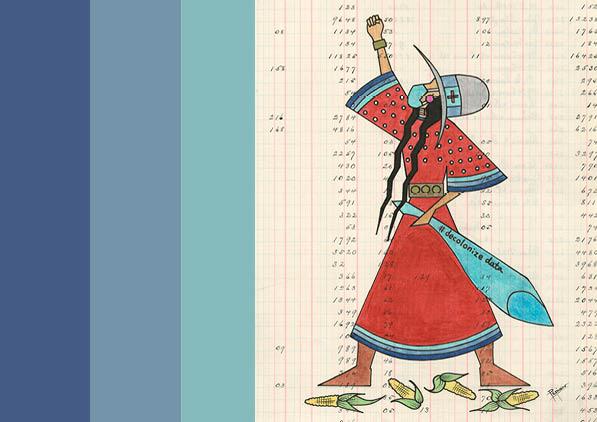
Source: Data Genocide of American Indians and Alaska Natives in COVID-19 Data, Urban Indian Health Institute (February 2020)
U.S. states are failing to track COVID-19 data for Native people, report says
For Immediate Release
February 19, 2021
SEATTLE, Washington — The Urban Indian Health Institute (UIHI) released a report today that graded all 50 states on the quality, collection, and reporting of COVID-19 data as it relates to American Indian and Alaska Native people.
The report states that poor data collection standards implemented by states has resulted in a substantial gap in understanding the disproportionate impact of COVID-19 on people of color across the U.S., specifically American Indians and Alaska Natives.
“This is a data genocide on Native people,” said Abigail Echo-Hawk, director of UIHI. “American Indians and Alaska Natives are dying at disproportionate rates and decision makers don’t even have accurate data to ensure we are properly funded and resourced.”
UIHI_Data-Genocide-Report-CardThe UIHI report graded states based on four categories: if American Indian and Alaska Native populations were included on state dashboards; the percentage of cases with complete racial information on state dashboards; the percentage of confirmed cases reported from states to the CDC; and the percentage of confirmed cases with complete racial information on the CDC database.
The poorest score came from Texas, followed by New York, New Hampshire, Maryland, and West Virginia, respectively. They all received an overall grade of “F.” Minnesota, Vermont, Maine, and Arkansas were the only states that received an overall “A” grade.
The accumulative grade of all 50 states was a D+.
“It is unacceptable for states to exclude us from the data, including my home state of Maryland,” said Kerry Hawk Lessard, executive director of Native American Lifelines. “States need to be held accountable for their actions. Indigenous communities are working day and night to address the pandemic, but some of the largest barriers are the ones out of our control.”
It is required by the CARES Act that states across the country collect race and ethnicity in COVID-19 data, but many states have not collected or reported it accurately. In February 2021, the CDC reported that 48% of race and ethnicity was missing from COVID-19 vaccination data.
Echo-Hawk will provide a briefing today to the Select Subcommittee on the Coronavirus Crisis about the current state of COVID-19 and vaccinations in Native communities, as well as the data issues that have continued throughout the pandemic.
The Select Subcommittee briefing begins at 2:30 p.m. EST. A livestream will be available on the Select Subcommittee’s website or YouT
HHS Small Ambulatory Program Awards $55 Million to 15 Tribes and Tribal Organizations (Indian Health Service)
Indian Health Service Announces New Deputy Director for Quality Health Care and Enterprise Risk Management (Indian Health Service)
Federal Emergency Management Agency (FEMA)
White House Office of Management and Budget (Joe Biden Administration)
Tuba City Regional Health Care Corporation (Arizona, Navajo Nation)
Oklahoma City Indian Clinic (OKCIC)
Indian Health Service (Department of Health and Human Services)
Navajo Nation Town Hall (Arizona, New Mexico, Utah)
Navajo Nation (Arizona, New Mexico, Utah)
Tribal organizations statement on advance appropriations for Indian Health Service
Indian Health Service Statement on Advance Appropriations (Department of Health and Human Services)
Indian Health Service (Department of Health and Human Services)
Indian Health Service (Department of Health and Human Services)
Navajo Nation (Arizona, New Mexico, Utah)
